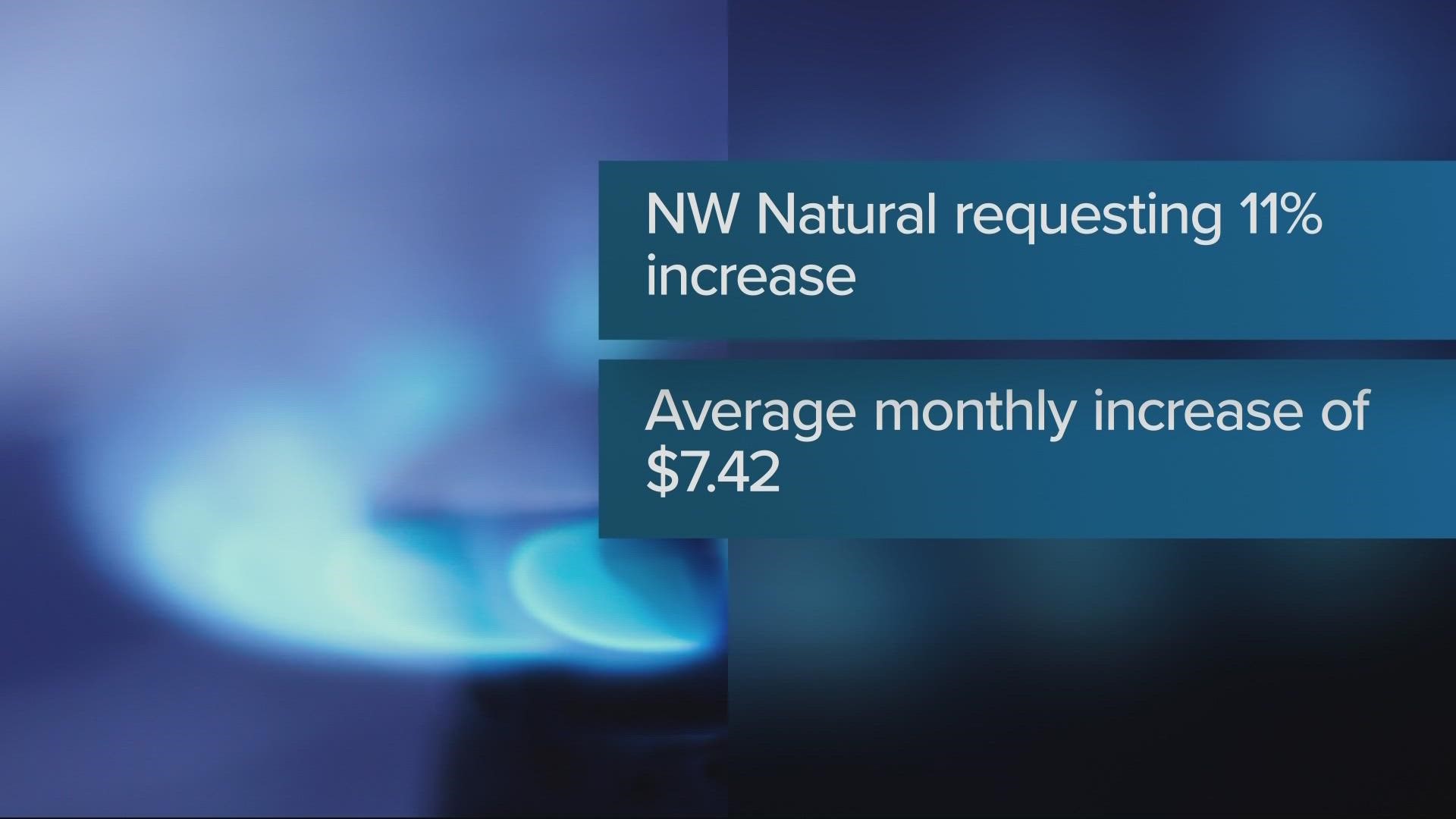PORTLAND, Ore. — NW Natural customers are in for bigger bills come Nov. 1. The utility has proposed a rate hike, but advocates for the millions of residential customers are pushing back.
When a utility company wants to increase its rates, they go before Oregon's Public Utility Commission to explain why customers should pay more for the service. Sometimes, advocates say, those rate increases are justified because you want systems to run smoothly and work for everyone all the time, so upgrades and improvements can be necessary.
However, sometimes intervenors — like the Oregon Citizens' Utility Board (CUB)— take issue with some of the requests and fight back on behalf of customers. Their arguments against a rate increase must be evidence-based.
"We have economists and experts that look at this case, we get to ask for data and for information from the company, we looked at all of the company surveys, we did look at the advertising, we can look at anything that they are asking customers to pay for, and say - is this appropriate or not?" explained Bob Jenks, CUB executive director.
The Public Utility Commission (PUC) confirmed NW Natural is asking for an increase in its general rates of approximately $73.5 million or 9.9%. In its filing, NW Natural also requests recovery of other costs, including its Lexington renewable natural gas project. Together, NW Natural is seeking a total rate increase of $81.8 million or 11.05%.
For a residential customer using an average of 52.5 therms per month, these combined adjustments would lead to a monthly bill increase of $7.42, effective Nov. 1, 2022.
In a statement, a spokesperson for NW Natural told KGW the utility requested a rate increase "to recover increased operating costs and investments in the distribution system, resources for replacing end-of-life technology infrastructure, seismic resiliency work, inflationary pressures, and other costs incurred since 2021."
The CUB claims the rate hike is not justified because it increases shareholder benefits, plus advertising and promotion of the brand. Jenks said the proposed increase might not seem like a lot on the surface, but it can quickly add up.
"Gas bills are really a winter bill - it's primarily about heating your house in the winter. So most of your gas costs go between November and February in those months. You're not going to get a seven dollar increase, you're going to get a $15 or $20 increase because it's coming on $150 or $200 bills."
Over the next several months, there will be more evidence and testimony presented to the PUC. After negotiations, there could be a lower rate hike than what was originally proposed, with the PUC ultimately making that decision in October.

